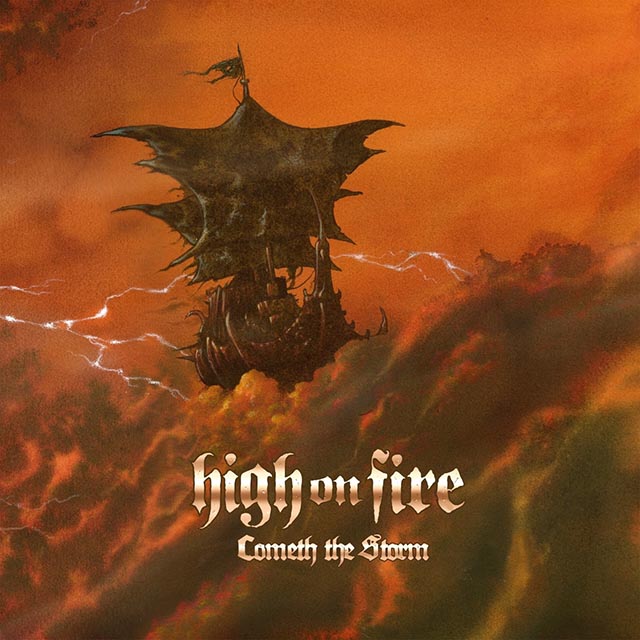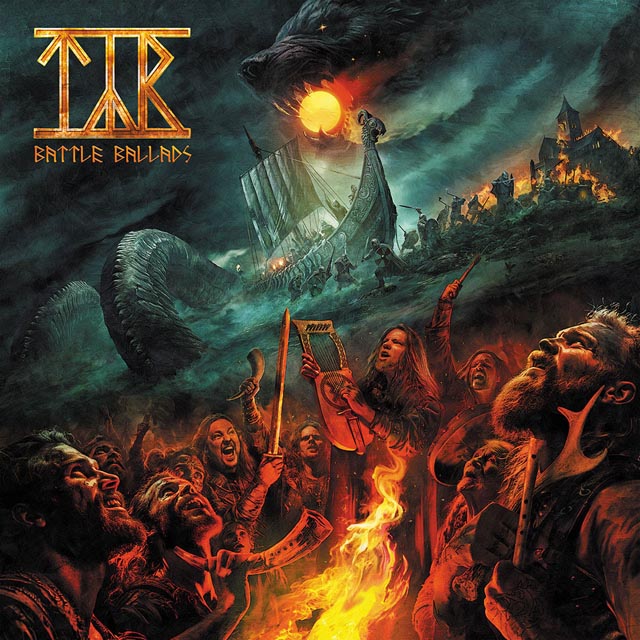
It’s no secret that many record labels have had a reputation for giving their artists the ol’ screwjob when it comes to fair compensation. This practice has seemingly been happening for as long as there’s been a music business. A now-legendary rant by former Victory Records executive Ramsey Dean against the label’s president Tony Brummel, now almost a decade old, has been making the rounds on the internet again as of late. In this scathing piece of verbal venom, what amounted to the greatest resignation letter in human history, Dean levels all sorts of accusations against Brummel – from dumping millions of dollars in artist revenue into bogus marketing scams to prevent bands from seeing royalties, to re-arranging actual product at major retailers in order to make sure Victory artists had precedent over other labels’ stock.
As anyone familiar with the industry knows, the atmosphere for corruption and deceit runs deep. We at Metal Insider talked to a few artists to get their points of view regarding experiences they’ve had with major labels, well as their own thoughts as to how the business of releasing music commercially can be accomplished. As to be expected, there was some venting of grievances, as well as bona fide words of wisdom. Even if you’re not treated poorly, the chances of that great windfall are slim – we’re pretty sure it’s the consensus that eyeballing a label deal (or even being a professional musician) in 2016 might not be the best path to career longevity.
 “Oh, they spent money on us, for sure,” laughs King’s X bassist/vocalist Dug Pinnick, reflecting upon his band’s time spent with a major record label – knowing full well that all monies needed to be recouped at some point. “We were fronted $200,000 to do the two months on the road opening for AC/DC in 1991,” Pinnick continues. “That’s one thing a record company will do – they’ll put you in front of the masses, but if nobody grabs it, they’ll dump you and you’ll have nothing. We owed Atlantic Records two million, and they forgave it – so now we’ll never get anything from Atlantic no matter how much our back catalog would sell.”
“Oh, they spent money on us, for sure,” laughs King’s X bassist/vocalist Dug Pinnick, reflecting upon his band’s time spent with a major record label – knowing full well that all monies needed to be recouped at some point. “We were fronted $200,000 to do the two months on the road opening for AC/DC in 1991,” Pinnick continues. “That’s one thing a record company will do – they’ll put you in front of the masses, but if nobody grabs it, they’ll dump you and you’ll have nothing. We owed Atlantic Records two million, and they forgave it – so now we’ll never get anything from Atlantic no matter how much our back catalog would sell.”
Pinnick advises bands these days to steer clear of the major label idea – amid the breakdown of the traditional music business structure. “Why are you even trying to be on a major label,” he ponders, “because you get nothing, not even a guarantee that you’re going to be successful. What I tell people now, is, for ten grand, you can get a publicist to do exactly what a record company does – go out there and try to get your name advertised in magazines and all that stuff. If you can save up 10-20 grand, you can do it all yourself – or if you borrow that money, and if you sell your record, you can pay back all that money. Jack White did his first two records on his own – they sold around 300,000 each, and he owned the rights to them. He then got a deal at Elektra for the third record, which sold millions – all off those first two records. Those days are gone where you go out and play and an executive comes up to you and says, ‘I really like you guys, we’d like to sign you.’ That doesn’t happen.”
 West Virginia-based hard rockers Bobaflex tell a similar story. Well, truth be told, they had it a little tougher than most. Frontman Shaun McCoy says that Bobaflex was lucky enough with their 2014 album, Charlatan’s Web, to come out on top, business-wise, after so many deals in their past with labels like TVT Records have scarred them. At one point during the past decade, the band lost the rights to their back catalog and even the rights to their name, but the momentum is clearly now in their favor. He’s seen some things, though, that he warns up-and-comers to be wary of – he advises them not to let stars in their eyes blind them.
West Virginia-based hard rockers Bobaflex tell a similar story. Well, truth be told, they had it a little tougher than most. Frontman Shaun McCoy says that Bobaflex was lucky enough with their 2014 album, Charlatan’s Web, to come out on top, business-wise, after so many deals in their past with labels like TVT Records have scarred them. At one point during the past decade, the band lost the rights to their back catalog and even the rights to their name, but the momentum is clearly now in their favor. He’s seen some things, though, that he warns up-and-comers to be wary of – he advises them not to let stars in their eyes blind them.
“There’s this thing right now called a 360 deal, where labels aren’t making enough money off of your CD, so they want your merch, too,” McCoy explains of one of the standard ways labels look to recoup their investment in an artist. “I just can’t justify them wanting 50 percent of your merch – that doesn’t work out very well in your favor. They just don’t realize how little that money is. When you take out the cost of paying your management 15 percent, your accountant 5 percent, and then the label 50 percent on selling $1,000 of merch – which is a really good night – you’re walking out with maybe $250. You can’t make a living off of that.”
McCoy knows his band is lucky to have tipped the scales in their direction with their current business involvement. “We met an investor that we were good friends with,” he explains, “and we made a contract more favorable to the artist, saying that he’s a partner for three years. He’ll always get a piece of Charlatan’s Web, but it cuts off after three years on everything else. You have to get creative in your deals because labels are getting more creative in how they’re going to take your money. Personally, I don’t think it’s a good thing to want to be signed to a traditional record deal these days. Maybe a developmental deal or a management company, but as far as a record deal, this 360 deal is garbage.”
 Former Overkill drummer Sid Falck, now living the DIY musical life in bands Infectus 13 and Hail Mary (the latter alongside ex-Overkill guitarist Bobby Gustafson) acknowledges the changes in the industry at large, and bemoans the loss of the days when you honed your craft through hours of practice, and said approach to rock ‘n roll stardom was the norm. “I think in the infancy of the whole social media experience, it was an incredibly powerful and useful tool,” Falck begins. “But, I think now, it has also become almost the death sentence for new bands. Anyone with a computer and an internet connection can become a ‘superstar’ merely by uploading to Facebook.”
Former Overkill drummer Sid Falck, now living the DIY musical life in bands Infectus 13 and Hail Mary (the latter alongside ex-Overkill guitarist Bobby Gustafson) acknowledges the changes in the industry at large, and bemoans the loss of the days when you honed your craft through hours of practice, and said approach to rock ‘n roll stardom was the norm. “I think in the infancy of the whole social media experience, it was an incredibly powerful and useful tool,” Falck begins. “But, I think now, it has also become almost the death sentence for new bands. Anyone with a computer and an internet connection can become a ‘superstar’ merely by uploading to Facebook.”
Falck believes, in 2016, there is a wasteland where talented musicians and bands go undiscovered simply because of the sheer volume of music flooding the social media sites – to the extent that people have no possible way of discovering them. “Twenty-five years ago, bad music was filtered out through record companies,” he says. “If you sucked, no one but your immediate family would ever get to hear about you. Back then, you had to first learn to play, then learn to play as a band, then learn to write songs, then hope someone would let you play live. In other words, you had to pay your dues. If you were lucky, you might get heard or come to the attention of an A&R person, and then you might get a shot at recording your songs in a real studio, where you actually had to know how to play not just your instrument, but also your songs as there was no help from the two-inch tape machine.”
Falck liked the idea of having music released through the proper channels, not the streaming sources of today. He says this way, promotion and such was done via advertisements in the various magazines that covered your particular genre. “Your target audience was pretty much guaranteed to know about you,” he offers. “These days, anyone who can afford ProTools or a similar program can afford a couple of plug-ins; they can more or less record themselves taking a dump, run it through some plug-ins on the computer, and voila, there is your ‘next big thing.’ As you can tell, I’m not really a fan of that.”
So Falck longs for the days when a major labels could hyper-target promotion of like-minded bands, and there was more of a filter. Yet the Kings X and Bobaflex members seem to think that the major label system isn’t beneficial to artists. The correct answer to this seems to be that there is no answer, and every artist has a different story.







